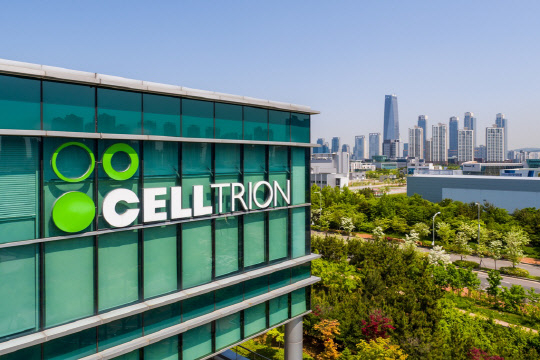Bio & Pharma
Celltrion teams up with bio venture to develop new anti-cancer drug
The S.Korean biopharmaceutical giant and GeneMedicine will jointly research oncolytic virus platform technology
By Feb 28, 2023 (Gmt+09:00)
1
Min read
Most Read
LG Chem to sell water filter business to Glenwood PE for $692 million


Kyobo Life poised to buy Japan’s SBI Group-owned savings bank


KT&G eyes overseas M&A after rejecting activist fund's offer


StockX in merger talks with Naver’s online reseller Kream


Mirae Asset to be named Korea Post’s core real estate fund operator



South Korea's biopharmaceutical company Celltrion Inc. will develop an anti-cancer drug that combines oncolytic virus technology with biosimilars under a strategy to emerge as a global pharmaceutical power using new know-how in the fight against cancer.
A biosimilar is a biologic medical item that is nearly identical to an original product made by another company.
Celltrion on Monday said it signed a contract with domestic bio venture company Genemedicine to conduct joint R&D of oncolytic virus platform technology. Both sides will develop anti-cancer drugs by attaching an oncolytic virus developed by Genemedicine to the antibody Herzuma, a biosimilar of the breast and stomach cancer antibody Herceptin.
The two companies say they expect to maximize the capacity of oncolytic viruses to attack cancer cells. Such viruses multiply within such cells to cause the latter to die but are limited in their ability to find the cells.
This is because the body's immune system considers oncolytic viruses as an enemy when they enter the body and immediately destroys them, so such viruses are injected directly into cancer cells only. This limited use has meant just three oncolytic virus products are approved globally, including Imlygic by the Thousand Oaks, California-based biopharmaceutical company Amgen.
GeneMedicine's oncolytic viruses have the advantage of avoiding attacks by immune cells thanks to nanomaterial coating on their surfaces. This allows such viruses tied to an antibody to avoid attacks from immune cells until they reach cancer cells.
Celltrion and Genemedicine this year will complete non-clinical trials on cells and animals. Celltrion plans to sign a global copyright contract if the effect is confirmed through such trials.
Write to Yoorim Kim at youforest@hankyung.com
More to Read
-
 Bio & PharmaCelltrion develops oral antibody drug with US bio company
Bio & PharmaCelltrion develops oral antibody drug with US bio companyJan 09, 2023 (Gmt+09:00)
1 Min read -
 Bio & PharmaCelltrion's Remsima receives approval in 100 countries in 10 years
Bio & PharmaCelltrion's Remsima receives approval in 100 countries in 10 yearsJan 03, 2023 (Gmt+09:00)
1 Min read -

Comment 0
LOG IN


